- Learning time
- 30 minutes
- First play time
- 80 minutes
King Chocolate
Designed by: Stefan Alexander
In King Chocolate you are competing chocolate producers, seeking to end the game the richest chocolatier. Plant your beans, harvest them, roast them, mix them, sell them…
The chocolate itself is represented by small brown cubes. Players begin four workers and a set of tiles each that, at the start of your turn, you must add one to the growing landscape of them on the table. The tiles are made up of double-hexes, and each hex represents a stage in the production of the precious chocolate. Matching hexes adjacent to each other are considered all part of one set, and ownership of large sets helps you make the most cash.
How do you claim ownership? Well, after placing your tile you have three actions to spend. You can place a worker on a set (cost: 2 actions) in order to make the set yours. At a cost of 1 action each you can move a worker to a new set, pick up a tile, and/or produce. Production is key to victory, because any time you move the chocolate along the production line – literally, moving the cubes onto the pods (the start of the chain) then from pods > beans > roast > liquor > chocolate > back to supply, the player who has cubes removed from their set gets cash equal to the amount of cubes removed. Ideally, that’s you, but sometimes it pays to actually move someone else’s cubes into one of your sets in order that you score points later. The enormous catch at the heart of King Chocolate is that there are six stages in production, but you only have four workers, so it’s impossible to set up a production chain that you control throughout. Instead players will be reluctantly awarding each other cash – or giving each other cubes – whilst placing tiles to try and extend their own controlled sets, and block in their opponents’.
There are four face-up tiles to choose from when you pick up a tile, and when these can’t be replaced from the supply the game instantly ends. This seeds the last couple of turns with extra tension, as you want to make as much cash as you can, but if your turn ever arrives and you don’t have a tile to place, you’re hit with a considerable penalty. Take the risk and spend all three actions making money? Or play safe and nab that tile in case you get an unwanted extra turn?
When all cash is counted up, the richest player is pronounced King – or Queen – Chocolate.
Joe says
I've only played this once, and it seemed very abstract and slightly peculiar. I'd be interested in having another go, but its stolid table presence and dry as a bone gameplay count against it somewhat.
The guru's verdict
-
Take That!
Take That!
A little. Mostly on the placement of the tiles, where your grand plans to spread out your roasting capacity gets harpooned by someone hemming you in with an unhelpful tile. Players also face the occasional decision of helping opponent X or helping opponent Y.
-
Fidget Factor!
Fidget Factor!
Although King Chocolate is kind of weird, when you break through that somewhat opaque surface, it does move pretty fast.
-
Brain Burn!
Brain Burn!
It's not overwhelming. Add a tile; take three actions. You do want to think ahead, and you do want to be careful who you might be making money for, but the board state changes so much there's not too much point agonising ad infinitum.
-
Again Again!
Again Again!
Assuming you enjoy the slightly weird and definitely abstracted vibe that King Chocolate brings to the table, the unpredictable falling of the tiles is enough to make the game impossible to master.

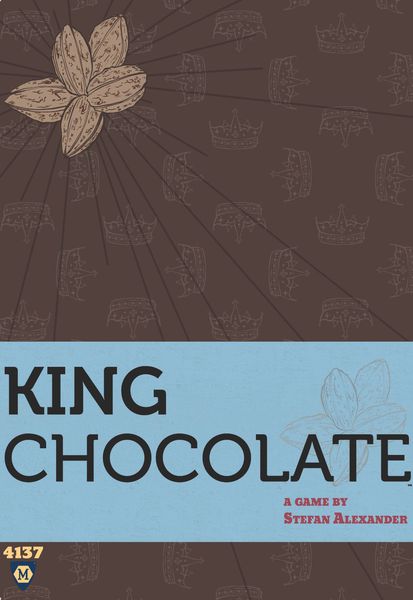
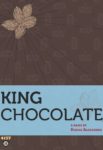
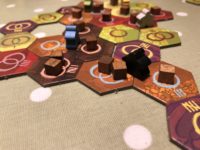
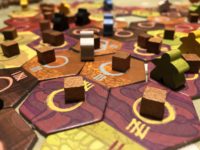
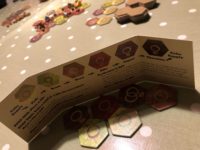
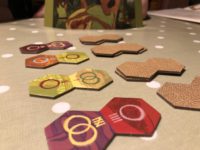


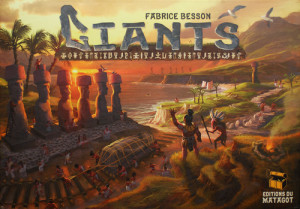
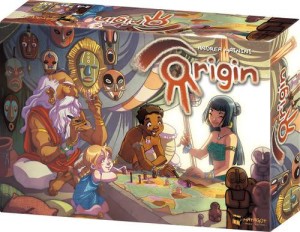
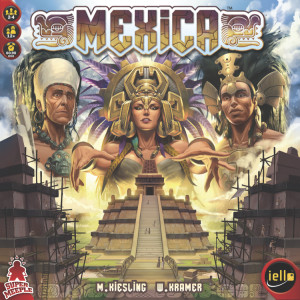

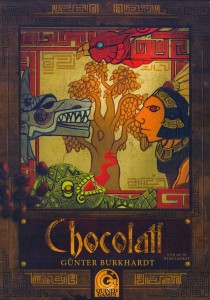
Sam says
All games are abstracted to some degree, but King Chocolate really isn't about making chocolate - it's an interactive, abstract puzzle, where players need to use each other's resources to remain competitive and you're balancing the economies of your workers and your tiles with the 'board' itself and the risk/rewards of helping your opponents. The idea of co-operation within a competitive game is interesting: it reminded me of Giants, where everyone is building Moai statues and helping each other transport them, or Babylonia where scoring ten points for your opponents now is better than letting them score 30 later. I dunno if I'd recommend it over either of those two though - Giants has more narrative to it, and Babylonia is just more fun. But King Chocolate is certainly interesting.